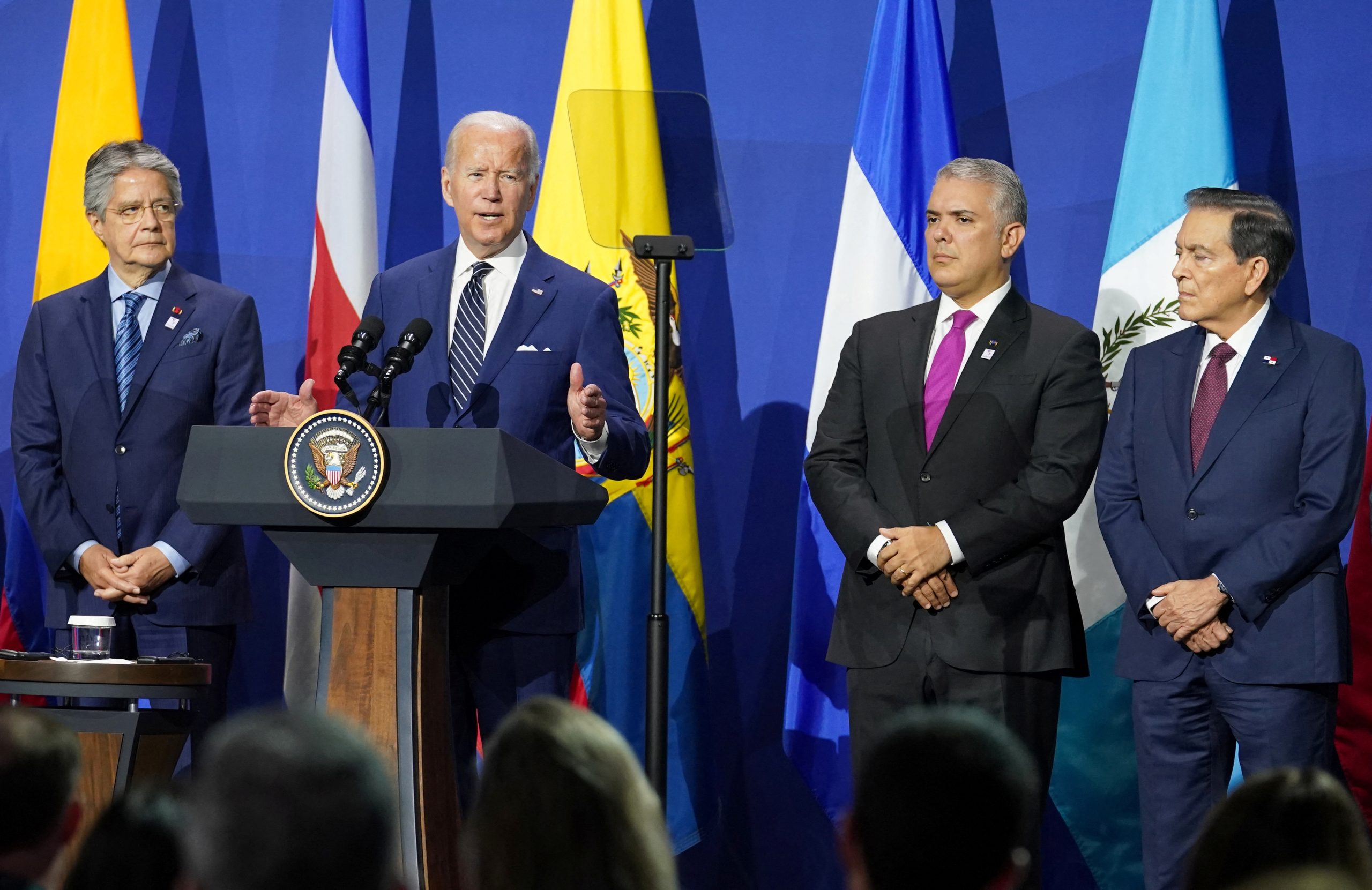
Willie R. Tubbs, FISM News
[elfsight_social_share_buttons id=”1″]
President Joe Biden used the final day of the Summit of the Americas conference in Los Angeles to introduce what the administration says is a transformative plan for immigration. On the same day, Republicans in the House and Senate restated a months-old request for a comprehensive exploration of why the crisis on the U.S. southern border has continued to spiral.
The U.S. and about 19 other nations issued a joint statement promising migration reform across two continents. The Biden Administration has deemed this the “Los Angeles Declaration,” a title no doubt meant to suggest historic gravity but one that belies a still-vague plan that is likely to be far less profound than advertised.
For now, the nations at the summit have agreed, in principle, to make “national, regional, and hemispheric efforts to create the conditions for safe, orderly, humane, and regular migration and to strengthen frameworks for international protection and cooperation.”
This will take the shape of a three-phase plan that will begin with a preferred Biden migration strategy: sending money and resources to South and Central American countries to make life there more bearable.
“Addressing the unprecedented migration crisis in the region requires us to rethink how we view multilateral development finance and how we manage the strains on our economies,” a factsheet from the White House reads. “The need for economic stabilization and support is particularly important in countries housing the more than six million refugees and migrants.”
While other nations will play a role in enacting the phase, the U.S. will be on the hook to pay for it. Biden committed an additional $339 million toward crisis mitigation ($25 million) and stabilization efforts ($314 million).
Biden also pledged $65 million in additional spending toward the second phase, broadly defined as “Legal Pathways and Protection” for migrants.
Under Phase II, the U.S. has committed to offering 11,500 nonagricultural work visas for citizens of Haiti and Northern Central America, overseeing a so-called “fair-recruitment” policy through the Department of Labor (guidance for American companies if they choose to pursue temporary migrant workers), and to resettle 20,000 Haitian migrants in fiscal years 2023 and 2024.
The final phase will be centered on border management, specifically at the U.S. southern border. The U.S. was the only nation to commit to actions under Phase III as Biden pledged to disrupt human trafficking and expedite asylum applications at the border.
“This is a historic moment for our country,” a senior administrator said during a background call. “No prior administration has so assertively engaged to the region to secure concrete commitments to share responsibility and act to address this regional challenge. And no U.S. President has stood in solidarity with Canada, the countries of Latin America, and the Caribbean in this way.”
The senior administrator, whose reason for being on the call was to preview concrete deliverables the declaration would yield, made only broad proclamations that the new migration approach would prove the United States a leader in handling refugees and migrant crises, bolster law enforcement, strengthen the U.S. economy by ending worker shortages.
In what has become a trend for the Biden Administration, the fact sheet was sorely lacking in details on just how any of this will work or by what method success would be measured.
What is certain is that the wild influx of people amassed along the southern border has been a disaster. Democrats and Republicans agree on this fact, although their solutions vary considerably.
Conservatives indicated no faith in Biden’s declaration. Rather, a group of 38 senators and congresspeople, headed by Sen. Rick Scott (R-Fla.) and Congresswoman Elise Stefanik (R-N.Y.), sent a letter to the Office of Inspector General for the Department of Homeland Security in which they repeated a request for a full investigation into why the southern border has turned into chaos.
“Joe Biden is laying out a welcome mat for human traffickers and savage cartels bringing drugs and crime to our communities, and blatantly ignoring U.S. laws and policies that are designed to keep America safe,” Scott said. “For over a year, I have demanded real action to secure the border, and back in January, I urged the Biden Administration to investigate the cause of its border failures. We must get to the bottom of this and ensure accountability for this man-made crisis.”
Stefanik added, “Illegal immigration is fueling the flow of illegal drugs into our communities and human trafficking across our border, making all our communities less safe. It is time for Americans to know why this crisis is continuing, and I am proud to lead the push for answers. I will not allow this administration to get away with their failed policies.”
According to Fox News, which obtained a statement from a spokesperson for DHS Inspector General Joseph Cuffari, DHS OIG was noncommittal beyond confirming the department had received the latest letter.
“We take all requests from Congress seriously and review them to better inform our work, including ongoing and future work,” the spokesperson told Fox.
In January, more than 100 Republicans signed the initial request for a full investigation.
